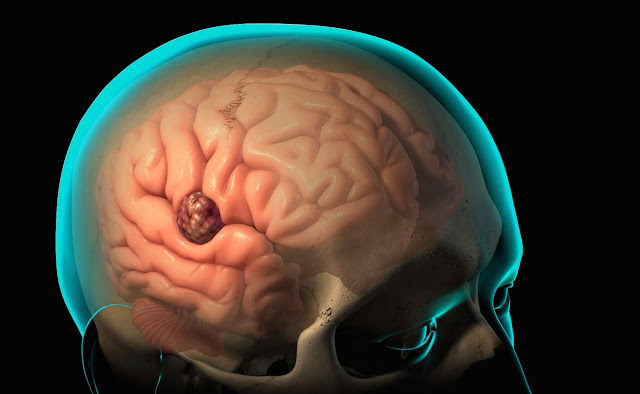A brain abscess is a collection of pus, immune cells, and other material in the brain, usually from a bacterial or fungal infection. It is mostly formed by bacterial infection; a fungal infection can be caused in weak immune system.
- Brain abscess forms when fungi, viruses, or bacteria reach your brain through a wound in your head or an infection somewhere else in the body.
- Heart and lung infections are among the most common causes of brain abscesses.
- But brain abscesses can also begin from an ear or sinus infection, or even an abscessed tooth.
- It can occur in any age, but most frequent in ages above 60.
Causes of brain abscess:
- Brain abscesses commonly occur when bacteria or fungi infect part of the brain. As a result, swelling and irritation (inflammation) develop.
- Infected brain cells, white blood cells, live and dead bacteria or fungi collect in an area of the brain. Tissue forms around this area and creates a mass, or abscess.
- The germs that cause a brain abscess can reach the brain through the blood. Or, they enter the brain directly, such as during brain surgery. In rare cases, a brain abscess develops from an infection in the sinuses.
- The source of the infection is often not found. However, the most common source is a lung infection. Less often, a heart infection is the cause
Risk factors of brain abscess:
Certain risk factors which increases the chances of infection may include:
- A compromised immune system due to HIV or AIDS
- Cancer and other chronic illnesses
- Congenital heart disease
- Major head injury or skull fracture
- Meningitis
- Immunosuppressant drugs, such as those used in chemotherapy
- Chronic sinus or middle ear infections
- Certain birth defects allow the infection to reach brain more easily, such as tetralogy of fallot, which is a heart defect.
Diagnosis of brain abscess:
Diagnosis of brain abscess may be done by certain methods, which include:
- Blood cultures- to know for infection in the blood
- Chest x-ray- To see any suspected infection in lungs
- Complete blood count (CBC)
- Head CT scan
- Electroencephalogram (EEG)-to test the electric impulses in the brain
- MRI of head
- Testing for the presence of antibodies to certain germs
- Lumbar puncture or spine tap- Taking a small amount of cerebral spinal fluid to see any further problems in brain other than infection
Symptoms of brain abscess:
Certain symptoms may include:
- Differences in mental processes, such as increased confusion, decreased responsiveness, and irritability
- Decreased speech
- Decreased sensation
- Decreased movement due to loss of muscle function
- Changes in vision
- Changes in personality or behaviour
- Vomiting
- Fever
- Chills
- Neck stiffness, especially when it occurs with fevers and chills
- Sensitivity to light
Treatments of brain abscess:
Brain abscess is a medical emergency; it should be treated immediately to prevent any further worsening condition, which may include:
Medication is the treatment procedure if certain abscess are:
- A small abscess (less than 2 cm)
- An abscess deep in the brain
- An abscess and meningitis
- Several abscesses (rare)
- Shunts in the brain for hydrocephalus (in some cases, the shunt may need to be removed temporarily or replaced)
- An infection called toxoplasmosis in a person with HIV/AIDS
Surgery is done in certain cases:
- Increased pressure in the brain continues or gets worse
- The brain abscess does not get smaller after medicine
- The brain abscess contains gas (produced by some types of bacteria)
- The brain abscess might break open (rupture)
- The brain abscess is large (more than 2 cm)
Surgical technique is always avoided as it can bring certain complications

No comments:
Post a Comment